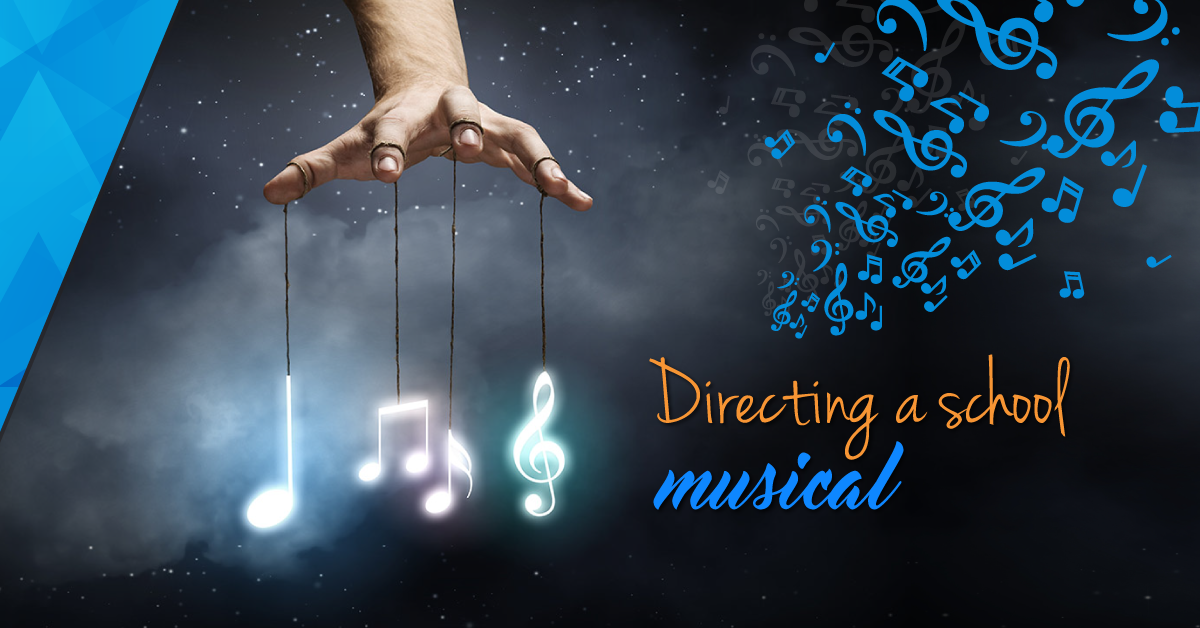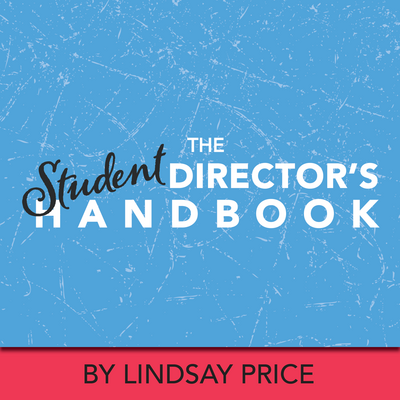Directing the School Musical – 5 Tips for Success
Directing a musical is a daunting feat. We spoke with three teachers about their experience directing musicals at the school level. From their experiences, we’ve got 5 tips to share that will help make your musical a success.
Our guest experts: Roxane Caravan (high school), Kim Florio (high school), and Tricia Oliver (middle school).
1. Plan (well) ahead
It all takes time to have the right actors for a certain musical, explore the script and score, get the rights secured, and build a cast. So, you’ve got to plan well ahead.
Kim works with high schoolers, and plans a few years out for her musicals.
She says: “I look at my students and sometimes project 2-3 years out. What will they look like when they’re a senior and can I pick this show?” Because you need to have some of your key players before you choose said musical. I always say, “You can’t do Peter Pan unless you know you have Peter.”
Roxane agrees: “I base a show on the talent that I know that I have and that I’m generally able to cast the show within reason. I think that that’s really important, as a director.”
2. Build a team and determine the scale of your production early on
Before any work starts with the cast, organize the background players, assign roles, and set the plan and schedule.
Kim says:
“You need to start thinking, “Okay, what scale am I going to do? Is it going to be large? How many people do I need to pull in? we reach out to our parents and say, “Hey, can you help build? Can you help find these costumes?” And so, that is a process.
If you don’t have that in place before you meet all of your eager young high school students, then you’re kind of drowning. You need to go ahead and get that prepared so all of those facets are working while you’re teaching the students the material.”
3. Develop student leadership
A critical part of taking some of the load off the teacher is to develop student leaders. Have students with previous musical experience show the ropes to the newbies.
Tricia directs middle schoolers, and says: “I love having that leadership – having somebody else to help hold the hand of the people who are brand new or coming through.”
4. Believe in your students
Even if you have a group of enthusiastic singers at rehearsal, they may need to morph into dancers and actors and stretch beyond their comfort zone. As a teacher, you need to prepare your students enough so that they are never in a situation that they can’t handle. Letting them know that you believe in them goes a long way.
Roxane tells us: “My students say, ‘If [the teacher] believes in us, then I’m going to believe in me.’ What an amazing thing!”
5. Don’t be afraid to choose a musical
Tricia says: “I find that musicals energize a program in a way [that] straight plays don’t. The kids love to sing and dance and use those tools to tell the story. And having a chorus (that usually comes with a musical) gives new students an opportunity to be introduced to the stage!”
Roxane says: “ Start small. Or do your own thing. If you’re not ready to hit it on your own with a big show, then do something creative on your own.”
Related Articles
The Student Director's Handbook
by Lindsay Price
Help students take their show from first audition to opening night with The Student Director’s Handbook. This easy-to-use ebook is full of guidelines, tips and templates designed to help students create a vision, circumvent problems and organize rehearsals on their way to a successful production.
The Rehearsal Companion
by Kerry Hishon
You’ve chosen the play, paid the royalties, done the script analysis, held your auditions, and cast the show. Tomorrow is the first rehearsal. Are you ready? Really ready? The Rehearsal Companion can help!





